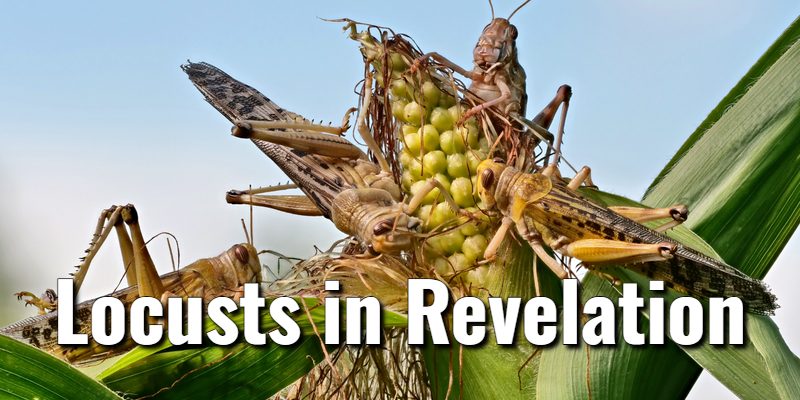The Book of Revelation is categorized as apocalyptic literature, a genre characterized by its symbolic language, often used to convey messages about divine revelation, judgment, and the end times. Revelation consists of 22 chapters, and 404 verses, and is known for its imagery and the use of various symbols, such as beasts, angels, seals, trumpets, and even locusts. The locusts are introduced in Revelation 9:3, which states: “And there came out of the smoke locusts upon the earth: and unto them was given power, as the scorpions of the earth have power.” This verse sets the stage for a swarm of locusts, unlike any ordinary locusts, as they emerge from the smoke of the bottomless pit, indicating their supernatural origin. Verse 7 provides a detailed description of these locusts: “And the shapes of the locusts were like unto horses prepared unto battle; and on their heads were as it were crowns like gold, and their faces were as the faces of men.” This description blends elements of warfare (horses prepared for battle) with features that are not typically associated with locusts (faces of men and crowns like gold), further underscoring their fearsome nature.
Locusts in Revelation
In Revelation 9:8, the locusts’ appearance is described in more detail: “And they had hair as the hair of women, and their teeth were as the teeth of lions.” The juxtaposition of traditionally feminine (hair of women) and masculine or ferocious (teeth of lions) attributes adds to their unnatural characteristics.
Verse 9 mentions: “And they had breastplates, as it were breastplates of iron; and the sound of their wings was as the sound of chariots of many horses running to battle.” This verse continues the martial imagery, depicting the locusts as not only fearsome in appearance but also formidable in battle.
A crucial aspect of the locusts’ description is their purpose and limitations, as outlined in verses 4-5: “And it was commanded them that they should not hurt the grass of the earth, neither any green thing, neither any tree; but only those men which have not the seal of God in their foreheads. And to them it was given that they should not kill them, but that they should be tormented five months: and their torment was as the torment of a scorpion, when he striketh a man.” Unlike natural locusts, which are known for destroying vegetation, these locusts are directed to harm only those people who do not bear the seal of God, inflicting painful torment akin to a scorpion’s sting.
The leader of these locusts is introduced in verse 11: “And they had a king over them, which is the angel of the bottomless pit, whose name in the Hebrew tongue is Abaddon, but in the Greek tongue hath his name Apollyon.” This verse identifies a specific demonic entity loosed as the ruler of the locusts.
Locusts are not unique to Revelation. In the Old Testament, locusts were often seen as instruments of divine judgment (see the Plague of Locusts in Exodus). The locusts in Revelation serve as an unsettling depiction of the tribulations of the end times.
Lord's Library is a Christian resource hub. Our editors use a variety of internet research methods like search engines, audio and video, AI, consultations with ministry leaders in the field, and more. Lord's Library should never be a substitute for reading your Bible daily as the Scriptures are to be our final authority on all matters. Lord's Library participates in affiliate programs. We may make a small commission from products purchased through this resource.
- What Does the Bible Say About Discernment? With Key Scriptures - July 19, 2024
- What Does the Bible Say About Disobedience? With Key Scriptures - July 19, 2024
- 1 Timothy 1:12 Meaning: Commentary on an Important Scripture - July 11, 2024













